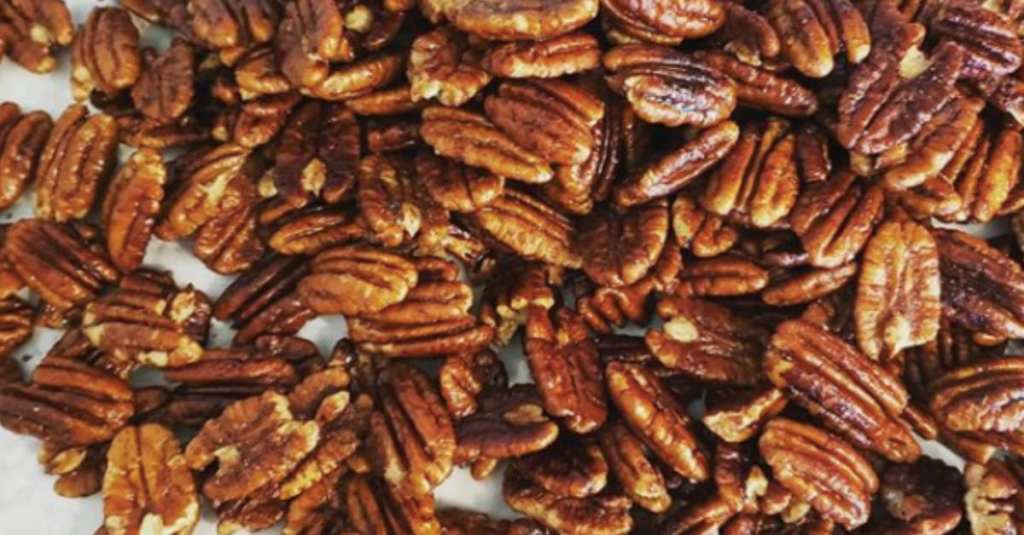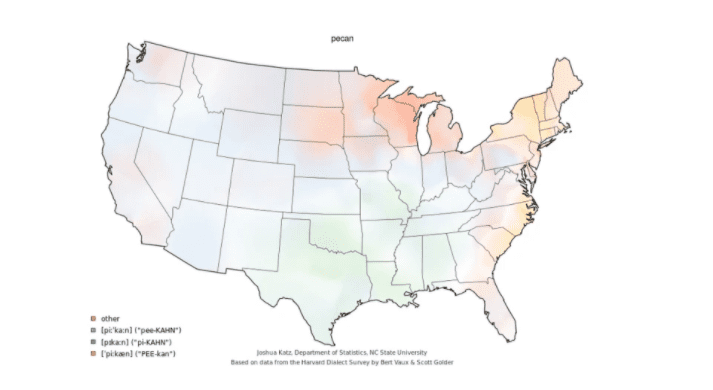Trending Now
Maybe you’ve never spent that much time talking about how you’re supposed to pronounce pecan – is it pee-can, or peh-kahn? And where does the emphasis go?
I always thought it was the second way until I spent some time in the south (and saw When Harry Met Sally for the first time) and now, I’m not so sure.
Is it just regional dialect, or is there a right way? Come along with me and find out!
https://www.instagram.com/p/CAOsAIfgQmb/
Which syllable to stress, it turns out, is the biggest problem – one that harkens back to English’s roots in old German. The Germanic core would insist we put the emphasis on the first syllable in any two-syllable noun (mother, father, water, etc). It’s not all early English words, but it’s a lot of them.
Once English started mugging the French language, though, second syllable stress became more common (advice, divorce)
But what does that mean for pecans, which are native to the United States?
Their name comes from the Algonquian language, where the word is pakan, but the French called them pacanes, with an emphasis on the second syllable.
https://www.instagram.com/p/B-Kbgq8DA9G/
To this day, no one can agree on how the word should be said, as far as emphasis.
As far as how the vowels are supposed to sound, those are largely due to a regional variation, and honestly, there are probably more than a couple of options. Based on how other words are said, you might expect that PEE-kan proliferates in the South and peh-KAHN in the North.
And while there is a split in the country, it appears to have more to do with the Appalachian Mountains than a true North-South divide.
We know this because at least one person, Kathleen Purvis, was so into pecans she wrote an entire book about them and it included a story about how her parents had a “mixed marriage” when it came to how they pronounced pecan.
“He was from Americus, a small town in South Georgia, and she was from the mighty city of Atlanta.
All of my childhood, I couldn’t say the word without being corrected: If I said “pah-cahn,” my father would accuse me of talking snobby. And if I said “pee-can,” my mother would sniff, “Pee-can? That’s something you put under the bed.”
For her, the difference was less regional and more economic – PEE-can is favored by rural people, typically of lower economic status, while people who live in urban areas tend to say peh-KAHN.
So, there you go. No matter how you were raised, you can pick your pronunciation to suit your mood – or to fit in with the people around you.
Who knew a delicious, versatile little nut could come with so much controversy?







